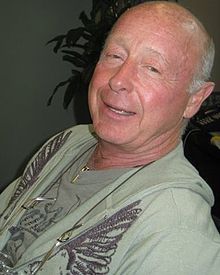Tony Scott could teach you a thing or two.
The 68-year-old director of Top Gun, Days of Thunder and Beverly Hills Cop II committed suicide Sunday by jumping off the Vincent Thomas Bridge between San Pedro and Terminal Island in Los Angeles Harbor.
In Hollywood, Scott was a top gun. Not an Academy Award winner or nominee like his more famous brother Ridley, who directed Blade Runner, Aliens and Gladiator. But famous nonetheless for making action pictures with fast-paced if predictable plots and bankable stars like Tom Cruise and Denzel Washington.

Regardless of why Scott chose to end his life the way he did – and there’s plenty of speculation about the reasons but as of yet no hard facts – there’s something to be learned from how he approached his work.
Here’s what writers – of fact or fiction – can learn from Tony Scott:
1. Face your fears. Scott called directing “the most scary, dangerous thing you can do in your life,” in a 1995 interview, as related in this story from Fox News and the Associated Press. “The scariest thing in my life is the first morning of production on all my movies. It’s the fear of failing, the loss of face and a sense of guilt that everybody puts their faith in you and not coming through,” he said.
Writers can relate to that – who hasn’t at some point pitched and landed a huge assignment only to wake up terrified at not being good enough to do the work? When that happens, fake it til you make it.
2. Borrow from the best. Imitation is the best form of flattery – as long as you don’t out and out copy. In a 1990 interview promoting Days of Thunder, Scott admitted to borrowing from classic race films. “I took the better elements, then tried to build on them,” he said.
Want to be a better writer? Read good writing. Read the classics. Read the best writers working in your genre or on your beat. Study the elements that make their work stand out to figure out how to weave them into your own work. That’s not permission to copy someone else’s work and call it your own. Far from it. It’s studying the masters and then emulating the characteristics that make them great.
3. Don’t be afraid to edit. In the same interview, Scott credited to the popularity of Days of Thunder to good editing, saying: “Really, the speed, the energy and the placement of the audience inside some of the cars came in the editing room.”
For freelancers, authors and others writers, good writing means rewriting and editing – lots of it. Don’t be so in love with your words that you stop seeing whether they belong in your story – or as Annie Lamott would say, don’t be afraid to kill off the little darlings.
4. Don’t pigeonhole yourself. Scott didn’t just direct movies. He made TV commercials and was an executive producer on TV shows such as Numb3rs and The Good Wife. He claimed to gain perspective by mixing things up. “I like changing the pace of my life, changing my discipline,” he said in a 2007 interview, according to the Fox News story. “It gives me ideas for how to see the world differently.”
Ever wanted to try a different type of writing: go for it. Life’ s too short not to experiment. Maybe you’ll hate it. But maybe you’ll discover that you’re good at something that you never expected to be good at. You won’t know until you try.
5. Appreciate the people you work with – and tell them as much. “Tony was always sensitive to the needs of an actor. We’ve lost a wonderful, creative talent,” Gene Hackman posted to Twitter after Scott’s death.
You might think of writing as a solitary occupation. But the reality is you work with editors, copyeditors, graphic designers, photographers and other collaborators. Make a habit of thanking them for making your work look great.
‘Fraid I cannot agree with you there. Whatever Tony did or didn’t do, ultimate he copped out, rather than facing his own most basic vulnerabilities.
http://www.writersdigest.com/editor-blogs/there-are-no-rules/top-10-blogging-tips-for-blogging-a-book